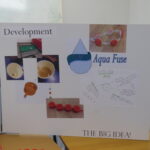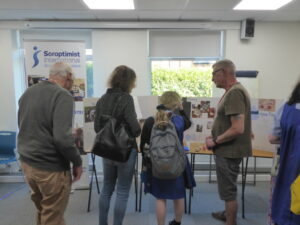Once again the school year was disrupted by the global pandemic and it was difficult for schools to deliver the curriculum, let alone other activities. Several schools attempted to field teams for the STEM Challenge. Unfortunately, only one team managed to complete their project and submit a final report for review.
The Challenge was to research a simple, sustainable innovation that could make life better for people living in poverty in the developing world.
The winning project
The team from Godolphin School decided to investigate sustainable ways to make drinking water safe. They tested a variety of natural products which could kill common water-bourn bacteria. The judges were very impressed with the level of scientific investigation that the girls showed in proposing and testing hypotheses. The team not only thought about the product content, but also designed an impressive package that could be a practical dispersal vessel. The judges commented on their “impressive design technique on 3D CAD” and “good critique for design improvements”. The ultimate conclusion was the garlic was an effective anti-bacterial but that it left the water tasting unpleasant.
Sponsorship
The Challenge was sponsored by Wessex Archaeology and Claire Mellett spoke about her work as a geoarchaeologist with the company. Alexandra Charleston also spoke about working in a STEM career and encouraged those who took part in the challenge to continue with their scientific thinking.
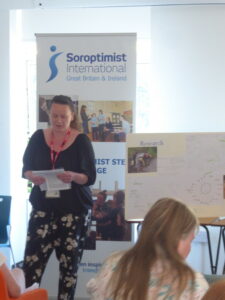
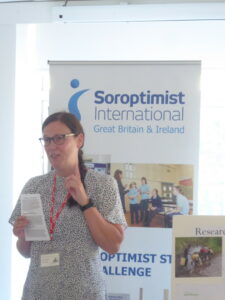
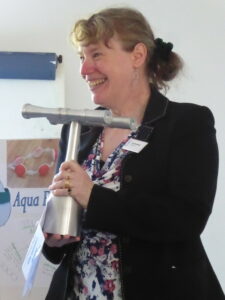
The STEM trophy was awarded to the winning team by Lisa Scandling on behalf of the judges and Salisbury Soroptimists. The other judge was Dr Mel Murphy. Our thanks to the judging team for their time and expertise.
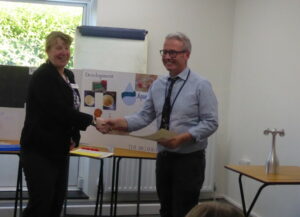
Thanks to Godophin School for hosting the event and to the family members who came along to support the students. They should all be very proud of their achievements.


